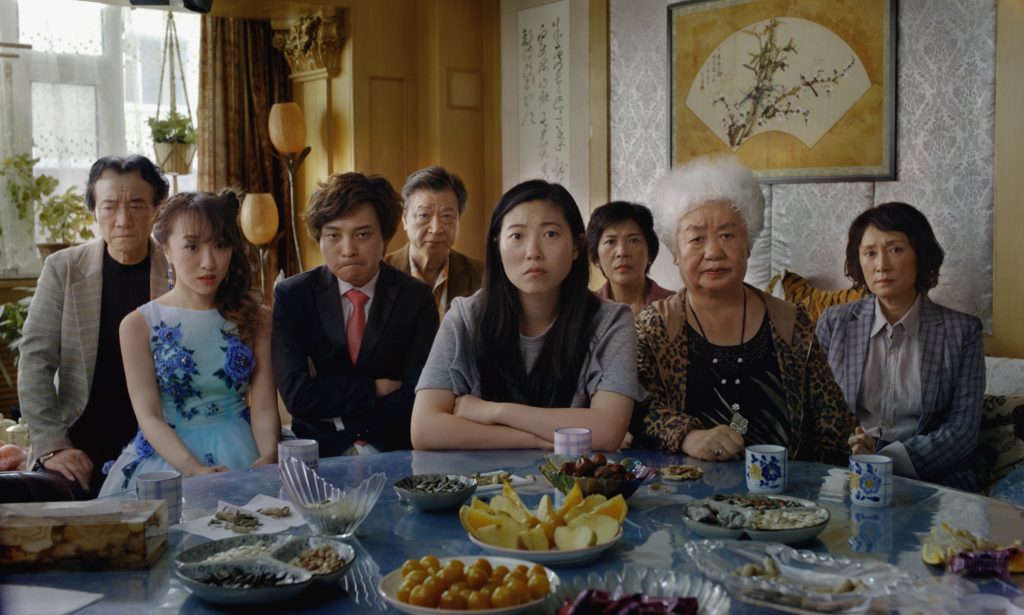Lulu Wang is a classical-pianist-turned-filmmaker. Born in Beijing, raised in Miami, and educated in Boston, Wang is a recipient of the 2014 Chaz and Roger Ebert Directing Fellowship, awarded at the Film Independent Spirit Awards. She’s also a 2014 Film Independent Project Involve Directing fellow and a 2017 fellow with Sundance Institute’s FilmTwo Initiative, a program supporting second-time feature filmmakers. Her first feature, “Posthumous,” was released by The Orchard.
“The Farewell” will premiere at the 2019 Sundance Film Festival on January 25.
W&H: Describe the film for us in your own words.
LW: While listening to our score recently, someone described the film as a “dissonant adventure,” which I thought was very fitting. The story is based on real events in my own family: my grandmother was diagnosed with a terminal illness and everyone decided not to tell her. Instead, my family staged a wedding for my cousin as a way to see her without making her suspicious.
The film follows a Chinese-American woman, played by Awkwafina, as she returns to China to say goodbye to her grandmother under the ruse of a wedding.
W&H: What drew you to this story?
LW: The sublime is a short distance from the ridiculous, and this film allowed me to explore that distance. It’s also a very personal story that depicts the proximity of grief and joy, pathos, and humor.
W&H: What do you want people to think about when they are leaving the theater?
LW: I want them to feel more than think, and if they must think, then I want them to not know what to think. The movie raises a lot of questions that I intentionally left unanswered, because in life there’s never one simple answer.
W&H: What was the biggest challenge in making the film?
LW: Having to direct in both English and Chinese, with a large ensemble cast in often small spaces, our biggest challenge was lack of time in our shooting schedule. A number of factors restricted our schedule, one of which was the time constraint on Chinese visas for certain cast and crew.
When we lost a couple days due to unforeseen circumstances, we had to quickly reconceive scenes, but ultimately, these new ideas actually made the film better.
W&H: How did you get your film funded? Share some insights into how you got the film made.
LW: The film was financed by two independent production companies, Big Beach and Kindred Spirit. I had the idea for this film for many years before I was able to find the right partners. At first, I was told by many people in the industry that this would be an impossible film to get financed since I wanted to keep the authenticity of the Chinese language and cast, but still make it as an American independent film.
It was only after I wrote and narrated the story for an episode of “This American Life” that producers who supported my vision approached me. Filmmakers are always encouraged to create their own intellectual property (IP), and I think it’s important to remember that there are so many kinds of IP these days: a podcast, a short film, a short story, a comic book, etc.
My path to getting this film financed was unconventional, but that’s often what it takes.
W&H: What inspired you to become a filmmaker?
LW: I’m a classically trained pianist and a writer, but both end up being very solitary professions. I love the collaborative nature of film, and it still allows me to tap into my passion for writing and music.
W&H: What’s the best and worst advice you’ve received?
LW: Best advice was and still is to write every day—anything, for any amount of time. Just put pen to paper or fingers to keyboard and be consistent.
Worst advice was to be aware of the demands of the industry and marketplace in developing your early films. Finding your voice as an artist is incredibly challenging—it’s important to shut out the noise.
W&H: What advice do you have for other female directors?
LW: Remember that you are a director. Period. It’s important to mine your personal experiences to hone your particular perspective of the world, but never let the adjectives put you in a box.
W&H: Name your favorite woman-directed film and why.
LW: There are too many to name just one! Jane Campion’s “The Piano” is an astounding depiction of female strength and resilience. Lynne Ramsay’s “Ratcatcher,” for its specificity of place. Susanne Bier’s “After the Wedding,” for the incredible performances from its ensemble cast.
W&H: It’s been a little over a year since the reckoning in Hollywood and the global film industry began. What differences have you noticed since the #MeToo and #TimesUp movements launched?
LW: A lot of women in the industry have come together to figure out how to ensure that the movement continues its momentum, and that spirit of solidarity is what I’ve noticed most. It’s also exciting to see directors like Chloé Zhao and Cathy Yan hired to helm massive upcoming studio films.







